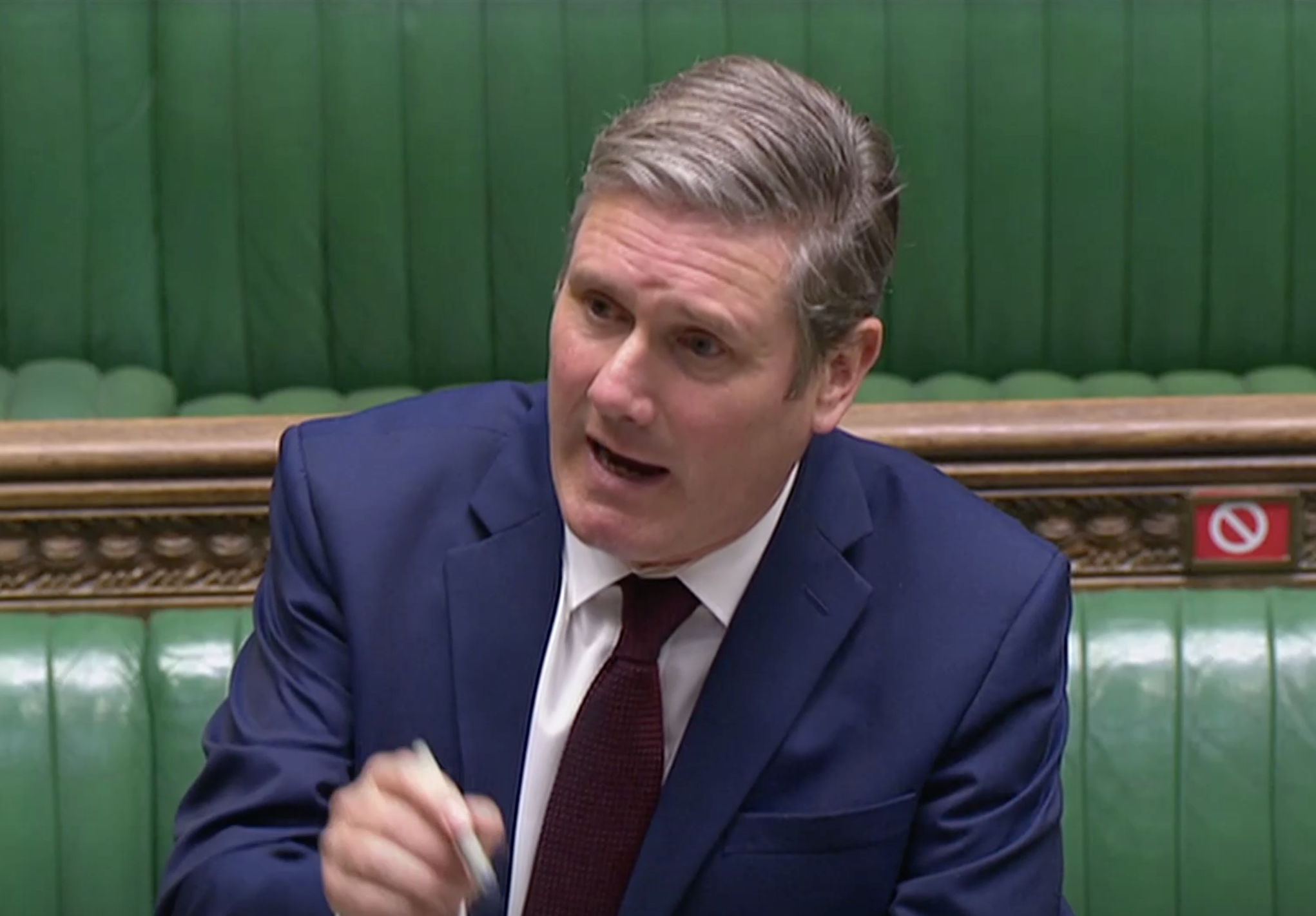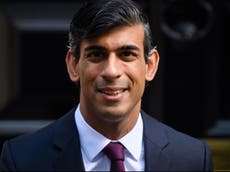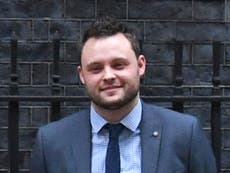Labour has reverted to type and is now trying to avoid being painted as fiscally irresponsible
You would have thought that the Labour Party would be driving home the chance to press the moral case for more generous support. But it is hung up on a traditional obsession, writes John Rentoul


You would have thought that Rishi Sunak, the chancellor, had borrowed so much that it would be impossible for him to resist demands to spend more public money. Today, the Office for National Statistics reported that the deficit for the first five months of this tax year was £200bn.
Yet the government has refused to agree sums for Greater Manchester that are trivial by comparison, causing the collapse of talks with Andy Burnham; and for maintaining furlough payments at 80 per cent of incomes in places that are locked down; and for free school meal vouchers in the Christmas holidays, as demanded by Marcus Rashford, the footballer.
And you would have thought that the Labour Party would be driving home the chance to press the moral case for more generous support. Thus at Prime Minister’s Questions, Keir Starmer demanded that Boris Johnson “provide the support that is needed in Manchester”. This was followed by two debates in the Commons on subjects chosen by the Labour Party, one demanding higher furlough payments, and the other on Rashford’s school meals campaign.
But there was something tentative about the opposition’s onslaught. Starmer said he thought the prime minister had “crossed a Rubicon”, but the leader of the opposition did not want to focus on the money. He criticised “the miserly way” the prime minister had treated Greater Manchester, but seemed more upset about “the grubby take-it-or-leave-it way these local deals are being done”, pitting “region against region, mayor against mayor, council against council”.
In the debate that followed, there was nothing restrained about the furious denunciations of the government from the Labour back benches. Mike Kane, a Greater Manchester Labour MP, started off with this: “Not since the Peterloo massacre of 1819 has the state displayed such coercive power over the people of Greater Manchester.”
Darren Jones, the Bristol Labour MP, made a powerful point by quoting Sunak’s Tory party conference speech from just two weeks ago: “Even if it feels like there is no hope, I am telling you that there is; and that the overwhelming might of the British state will be placed at your service.” It was a curious thing for a Tory to say at the time, but those words sound hollow already, as Jones observed.
Some Conservative MPs were also unhappy with the government’s approach. William Wragg, whose constituency is in Greater Manchester, said: “What concerns me most is the coming hardship, the rising unemployment and some people’s despair. Indeed, I cannot help but reflect that the medicine risks being worse than the disease.”
He and Chris Green, another Greater Manchester MP, were the only two Tories to vote with Labour today, but he seemed to be arguing against restrictions, rather than joining with Labour to argue for stricter ones nationally.
Angela Rayner, Labour’s deputy leader, did her bit to raise the partisan temperature, audibly heckling “scum” when Chris Clarkson, a Greater Manchester Tory MP, accused Andy Burnham of exploiting the situation for his political ends.
But the motion tabled by the Labour leadership was carefully worded. It looked as if it demanded that payments under the extension of the furlough scheme be raised from 67 per cent to the 80 per cent of the original scheme. But the motion actually called on the government to “make good on its claim that workers faced with hardship […] will receive at least 80 per cent of their previous incomes”.
This is a reference to a bit of government spin, claiming that most workers on the minimum wage would, under the new mini-furlough scheme, get 80 per cent of their incomes if universal credit were taken into account.
Once again, then, Labour is holding back from a clear and unequivocal commitment to spending more public money. We can understand why Sunak might be reluctant to give in to pressure to spend more. Even though he has spent unimaginable sums of borrowed money already, the reflex of the Treasury will always be to try to avoid spending even more.
What is interesting, though, is Starmer’s caution in demanding higher borrowing and spending. This is perhaps the starkest difference in approach between his leadership and that of Jeremy Corbyn and John McDonnell. Starmer and Anneliese Dodds, his shadow chancellor, have reverted to Labour’s traditional obsession, of trying to avoid being painted as fiscally irresponsible.
As lockdown hardship increases and unemployment rises, this is going to be a constant tension in the Labour Party.




Join our commenting forum
Join thought-provoking conversations, follow other Independent readers and see their replies
Comments